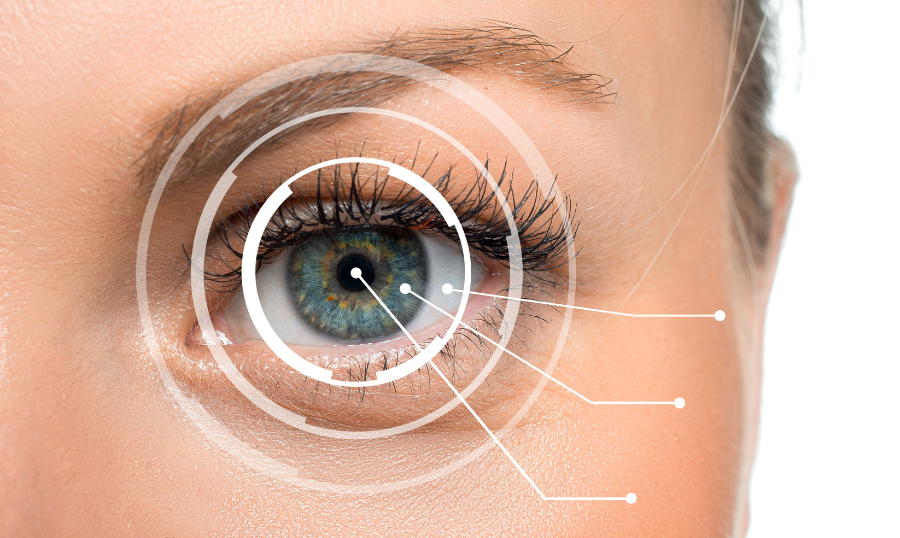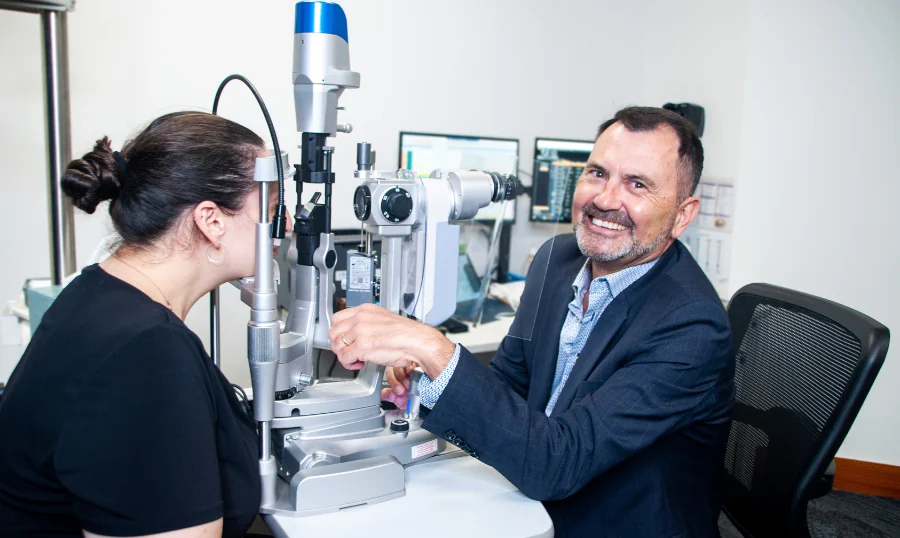The Longevity of Clarity: How Long Does Laser Eye Surgery Last?
Discover the lasting effects of laser eye surgery and factors influencing its longevity in our comprehensive guide.

The ability to see a single image with two eyes involves a complex, system of muscles, nerves and other eye parts. When two eyes correctly and accurately point and focus at the same time, we see only one image. In normal vision, the two separate images from each of your eyes are combined by the brain to produce one single image. Double vision can occur when the brain cannot combine the images from each of the eyes into a single image.
People with double vision will see two images of one object at the same time. It might look like the images are side by side, one above the other, tilted, overlapping, or a mixture of all these. Some people are affected only occasionally or temporarily, but for others it can be a constant problem, which can either occur in one eye or both. There are two main types of double vision – binocular and monocular.
If double vision occurs in both eyes, it is binocular. Those with binocular double vision will find that covering either eye gets rid of the double image. Binocular diplopia occurs when your eyes don’t align with each other as they normally would, which is the most common type of double vision.
Common Causes: The most common cause for binocular double vision is a squint/strabismus (misalignment of the eyes). However, if double vision develops rapidly or abruptly, it could be a symptom of a much more serious medical condition. Diseases of the thyroid or arteries, along with diabetes, multiple sclerosis, stroke, a head injury and a number of other serious conditions can cause double vision. For this reason, it is important to make an appointment with an eye specialist as soon as possible if you have double vision.
When double vision only occurs in one eye, this is called monocular diplopia. This type of double vision is much less common than binocular diplopia. To find out if you have monocular double vision, covering only the affected eye will make the double vision disappear. It will still be there if you cover the other eye. It is usually more of a shadowing than an identical second image.
Common Causes: Monocular double vision is usually caused by an abnormality within the eye itself, such as a refractive error like astigmatism, corneal irregularities (such a keratoconus) or retinal alterations (such as epiretinal membranes). However, the most common cause of monocular diplopia is a cataract (clouding and opacification of the lens inside the eye). Monocular double vision can also be caused by abnormalities of the iris, lens, or fluid within the eye, and even dry eye.
Double vision can sometimes be temporary. Alcohol intoxication, benzodiazepines (prescribed medications treat many conditions including severe anxiety and sleep problems), opioids, or certain medications for seizures and epilepsy sometimes cause this. Head injuries, such as concussions, can also cause temporary double vision.
Having strained eyes or being overly tired can also bring on temporary double vision. If normal vision does not return quickly, seek medical attention as soon as possible.
Since there are so many possible reasons for monocular and binocular diplopia, diagnosing the underlying cause of double vision can be challenging. However, as a starting point the specialist will start by determining whether the double vision is monocular or binocular. If double vision is monocular, it means that the problem is more likely to be within the eye, rather than in the nerves or brain. In this case, it is likely to be less serious.
In order to carry out a diagnosis, a thorough evaluation of your double vision will include a detailed history of your symptoms: fully describing your vision problems to your ophthalmologist can help them eliminate possible causes and decide on what tests may be helpful. Be sure to let your doctor know of any unusual symptoms you have experienced, even if you aren’t sure if they are related to your vision problem.
A complete history of past and current medical conditions will be reviewed. For instance, your doctor may consider underlying factors that could be causing your vision problems, including diabetes, thyroid problems, or neurological disorders. Additionally, your doctor will also ask for your family health history. If family members had vision problems or disorders that can lead to double vision, let your doctor know. This information may be a good basis for your diagnosis to gaining a better understanding of what is causing your double vision.
During a consultation at Auckland Eye, our ophthalmologists will perform a comprehensive eye exam including:
If you suffer from double vision, your treatment will depend entirely on the type and cause of your diplopia. Treatment can be as simple as wearing special glasses, contacts or an eye patch. If you have monocular diploma, wearing an eye patch quickly eliminates one image but has the negative side effect of decreasing your dimensional vision or depth perception. Similarly, a cataract operation may be necessary if a cataract is the cause, or dry eye treatment may help if dry eye syndrome is the cause of your double vision.
If it is an eye alignment problem then surgery on the eye muscles might be required.
While double vision may be temporary, you should still visit your eye doctor to find out what’s going on and determine if there is a more serious underlying condition causing it. When diplopia comes on suddenly, a neurological issue should always be ruled out first before investigating more common causes.
To make an appointment with at Auckland Eye with one of our ophthalmologists call 0800 25 53 93.

Discover the lasting effects of laser eye surgery and factors influencing its longevity in our comprehensive guide.

Curious about the real cost of laser eye surgery? Discover everything you need to know about pricing, financing options other options.

Vision correction solutions are about living your best life at any stage of life. "An eye for eyes" published in North & South Magazine (May 2024).